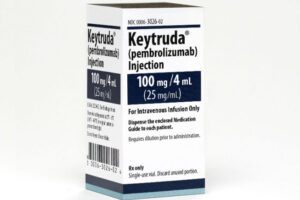 A million of people are diagnosed with squamous cell carcinoma in the United States every year. In most cases, you can treat SCC. However, more advanced SCC has been difficult to cure. A new treatment called Keytruda has been approved by the FDA. Read on to learn about SCC and how to treat it.
A million of people are diagnosed with squamous cell carcinoma in the United States every year. In most cases, you can treat SCC. However, more advanced SCC has been difficult to cure. A new treatment called Keytruda has been approved by the FDA. Read on to learn about SCC and how to treat it.
What is Squamous Cell Carcinoma?
SCC is the second most common form of skin cancer. It develops in the squamous cells located in the middle and upper layers of the skin. SCC is easy to treat but will grow aggressively if left untreated. The lesions may spread to other parts of the body and cause serious complications. SCC will appear as open sores, scaly red patches, or wart-like skin.
When squamous cells experience abnormal changes, SCC will occur. Changes may happen when the skin gets exposed to ultraviolet radiation. SCC can develop on any part of the body but is most likely to appear in sun-exposed areas.
Localized and Advanced SCC
For a lot of cases, SCC is localized, which means there is small lesion growth. Localized SCC is easy to treat with minor surgical interventions. Advanced SCC is a more serious stage where the disease grows becomes invasive. Advanced SCC can be fatal and effective treatment requires clinical investigation.
Treatment for Localized SCC
Mohs Surgery
Earlier stages of SCC can be cured with surgery. Mohs surgery is done if the SCC has a high risk of returning or if the cancer forms on the face or genitals. Excisions cut out the tumor, but Mohs surgery helps remove any remaining cancer.
Radiation Therapy
Patients may use radiation if they have large tumors or are unable to get surgery. It may also be used after surgery if there is still some remaining cancer left. If SCC returns, then radiation is often used to treat it.
Cryotherapy
For cryotherapy, the doctor applies some liquid nitrogen to the tumor. The cells are frozen and killed, and the process repeats multiple times. Cryotherapy is not an option for those with invasive tumors and cannot be done on certain areas of the nose, eyelids, ears, and scalp.
Keytruda Now Approved
In June 2020, the FDA approved pembrolizumab, or Keytruda, for the treatment of advanced cutaneous SCC. Keytruda is an immune checkpoint inhibitor. It blocks a cancer cell’s signal that stops immune cells from attacking it. Data from a Phase 2 trial called KEYNOTE-629 showed that Keytruda had reduced tumor burden for a large portion of patients. Participants received 200mg of Keytruda every three weeks for two years. Results showed at least a 30% reduction in lesions. Of the 105 participants, 4% saw the complete disappearance of lesions, and 31% had partial responses after 9.5 months.
If you have a suspicious spot or would like to learn more about skin cancer treatment, please contact us.
